Brighter Tomorrow: Help the children of Babag, Philippines
In the mountains of Cebu, child sponsorship has the power to send children to school safely and encourage them to chase their dreams.
Sponsored children: 0 of 13
Meet an exceptional woman.
“I don’t want to talk about myself, I’m shy…” Dada hesitates. We are in Chiang Mai, Northern Thailand. Lost in the highest mountains in the country, this town used to be a stopover town on the Silk Road, it has become a modern city attracting thousands of tourists each year.
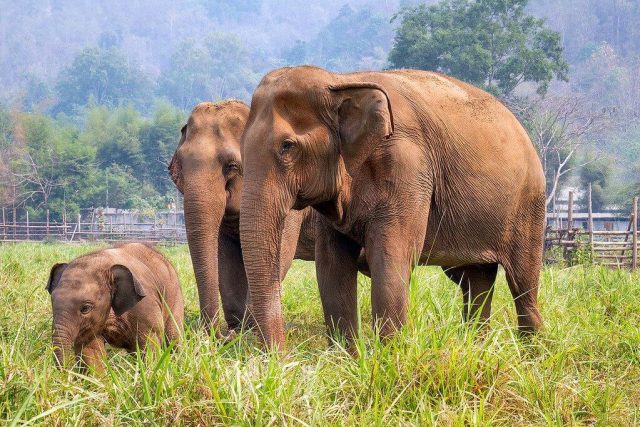
Away from the hustle and bustle of town; Dada takes care of the old Lords of the Siamese Kingdom. The elephants have been desacralized by the development of cities and the modernisation of the country. Dada has devoted herself to these animals as they are an important part of the Karen culture and heritage, which are paramount to her. One could even say essentially: “I want to protect my culture because I feel like it is getting lost. For example, traditionally, Karen people never rode elephants”. Thus, when Dada discovered that the main local tourist activity was riding elephants in the mountains of Chiang Mai, she decided to propose an alternative. Something more respectful of her culture: a centre where one can participate in taking care of the pachyderms and discover the Karen culture. “I want tourists to learn about the life and history of the Karen people.”
However, in Dada’s life, there is something even more sacred than elephants: “Our company isn’t very big, but it allows me to do voluntary work and help others.” These “others” Dada is referring to and dedicating her time and a good chunk of her energy to, are about thirty families without resources which are sponsored by Children of the Mekong. “I want to safeguard the childhood of my country!” At 42, Dada is completely invested into this mission that she has made her own. Beyond belief, it has become a duty. Shy and discreet by nature, Dada speaks in a quiet but eager voice “I must help them!”
Dada, whose full name is actually Narinda, although very few people call her that, wholeheartedly believes in education. While her income is too small for her to financially help the families she is in contact with, she isn’t stingy when it comes to spending time with them.
On the topic of time, Dada spends a lot of it studying. As a young girl, she had to work on the family farm, just like her six siblings. She left home against her parents’ will overnight. Penniless, she signed up for university as she was convinced education was the only way for her to pull through. Today, she shares this belief with the poor families who come to her, worried about their children.
Thus being said, this period of her life was in no way easy: “I studied far away from my village in Ubon (located in the Ubon Ratchathani province, in the South of the Isan region, in North-East Thailand). It took one day and one night for me to get there!” During her first year, Dada didn’t go home. She worked weekends to be able to afford university. The school fees back then were about 300 Bath each month, the equivalent of several days of work. Dada studied for six years, six long years of going back and forth between the city and the countryside, where there was no running water or electricity.
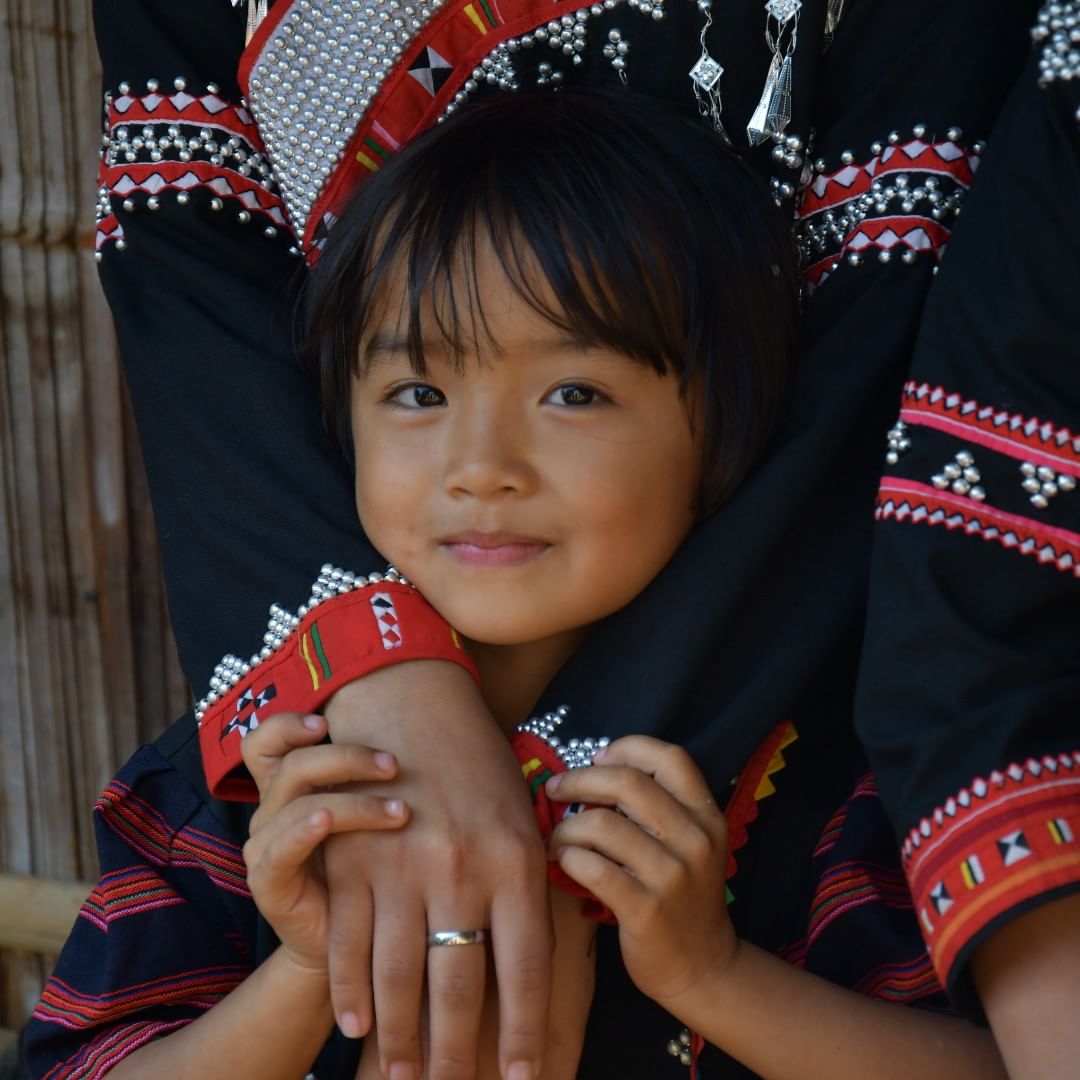
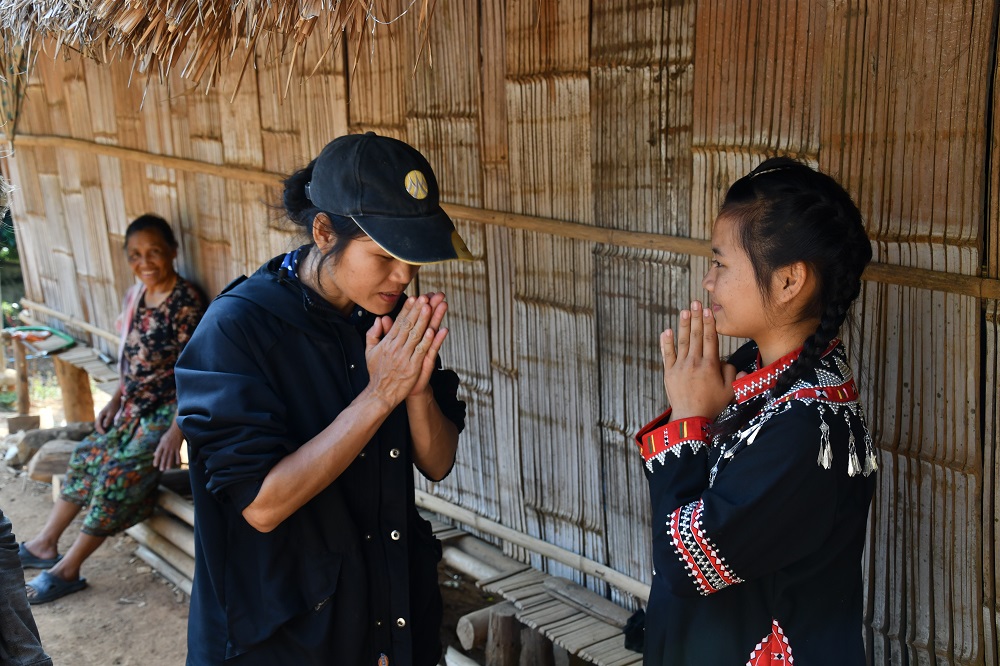
« I have had to fight my way through university to be able to study when the people I was in class with had money and didn’t even want to go to school!” Looking back, she is laughing at those inequalities, however, she is combatting them every day so that the other children don’t suffer from them.
Married and the mother of two boys, Dada often reminds them of the importance of education: “Studying is our only way to survive, it is almost vital to be able to study.” Dada has no money to give them, but like many other parents, she wholeheartedly hopes that they will do better than her, go further in their studies and have a well-paid job.
Everything doesn’t revolve around money: she knows money won’t make her a good mother, or make her children good people. To Dada, family is always most important. She has grand plans for her boys: she wants their hearts to “become beautiful”, something she cares about a lot. She would like for her children to be able to distinguish good from bad and to remain close to one another. Dada believes that one doesn’t succeed in life thanks to money or knowledge, but rather through good character, values and proper education.
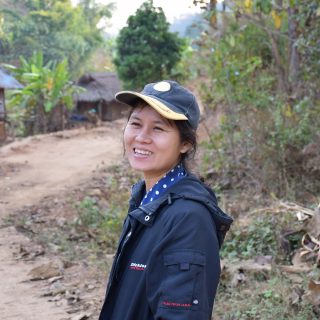
“I had to fight to study when my classmates, who had money, didn’t want to go to university. […] You can only survive by studying, it’s almost vital to be able to study!”
Although she graduated with a major in communications, Dada ended up focusing on social work to achieve her desire to help isolated and populations that have been cast aside. Every day, Dada manages the sponsorship of about thirty children, with a particular interest in their school life. She also regularly visits families in their villages and is in charge of translations, alongside university students.
She is also in charge of coordinating the reception of Akas and Lahus people suffering from AIDS at the hospital. The patients come from 24 different villages. With emotion, she tells how HIV has become a scourge in the past ten years. The local populations bring the virus from their place of work into their homes. There at least, she feels useful by helping people with bigger problems than her own.
Dada truly enjoys her life. No one would suspect the aura and influence of the tiny slender and peaceful woman who talks in a low voice. In her big open kitchen, Dada confesses with a small smile she has rediscovered the tranquillity that she had when she was younger ever since she started helping others. She knows she will never earn a lot of money, but it doesn’t matter to her as she is working for “the future of her country”.
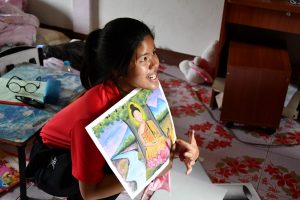
How come she asked Children of the Mekong to sponsor the children of this community? The answer is obvious: Dada, when she was young, was herself supported by Children of the Mekong. What she received, she wanted to make available to other children in her situation. “I never had the chance to meet my sponsor, and that made me sad. If he reads this article one day… I hope he will contact me straight away!” she adds with teary eyes. With a quick smile, she admits that back then, she felt jealous of her friends who received more letters than her.
In Thailand, many children live in complicated situations: there are many single parents. The father leaves, and the mother does too sometimes. The children are then entrusted to their grandmother, an aunt or a neighbour. Dada involves herself in voluntary work to help the children in her country have a better life than she did. So that they can be able to take care of their own families when it is their turn to do so. Five years ago, Dada could have lost everything when her doctor told her she had cancer. Dada immediately stopped working and asked her children to come back home. They also stopped working to be closer to their mother. She drew the strength she needed to heal from her family. Since then, her dedication to others has increased tenfold. Dada is always available to help those weaker or poorer than her, as long as her body allows it.
Dada didn’t want to talk about herself. Nor did she want to put herself forward. It is for the sake of others that she finally agreed to speak with us: “If it can help people understand sponsorship and the local needs in Thailand, then I am willing to tell you my story!”.
Before going to sleep in her house on stilts, and get some much-deserved rest, Dada asked us to make a wish on her behalf: for her to stay healthy for as long as possible so that she can keep on helping those who need it most.
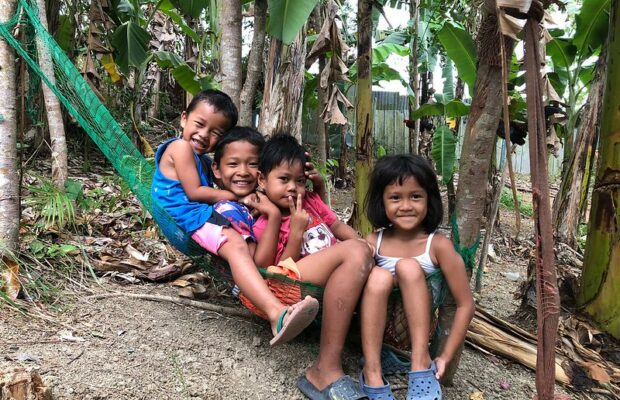
In the mountains of Cebu, child sponsorship has the power to send children to school safely and encourage them to chase their dreams.
Sponsored children: 0 of 13
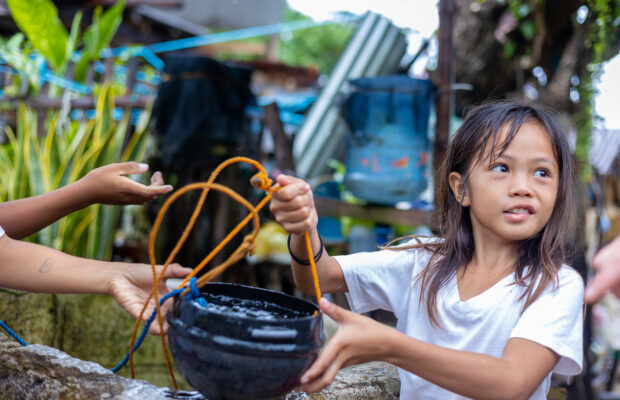
In the small town of Liboro, Philippines, sponsorship has the possibility of transforming the lives of young people by sending them to school.
Sponsored children: 11 of 13
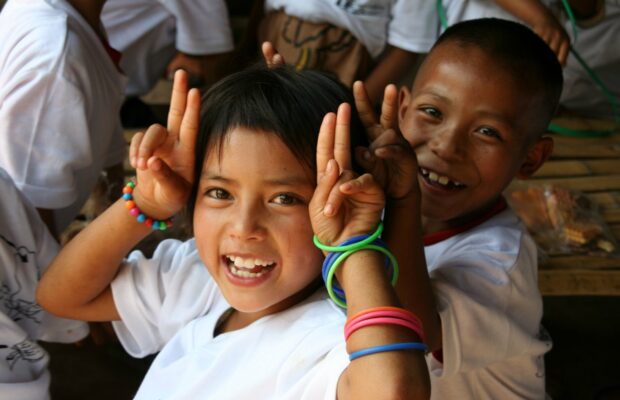
In this neglect community not far from Bangkok, sponsorship is vital in supporting the basic needs of families, enabling their children to attend school. […]
Sponsored children: 11 of 14
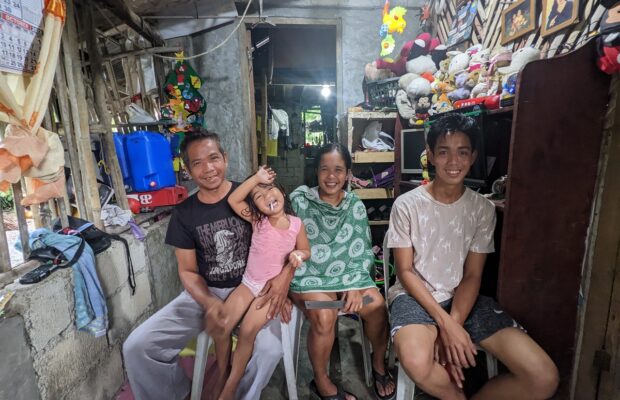
In this isolated region in the north of the country, it is difficult if not impossible for the poorest families to send their children […]
Sponsored children: 14 of 15
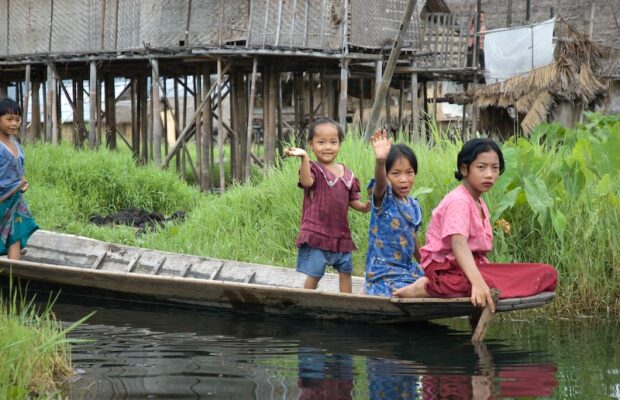
The current situation in Myanmar is more than complex – ethnic minorities are torn between a political crisis, increasing poverty, drug and human trafficking […]

Urban poverty is appalling in the Philippines. Sponsor a child today and give them the chance to get out of poverty thanks to the […]
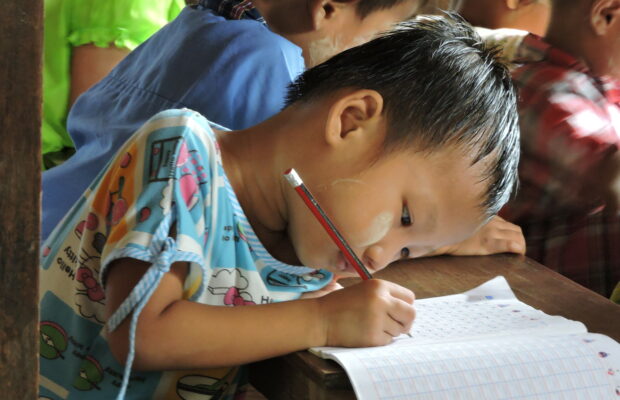
It is a real challenge for children in Tedim to go to school. This child sponsorship is a unique opportunity for these children to […]
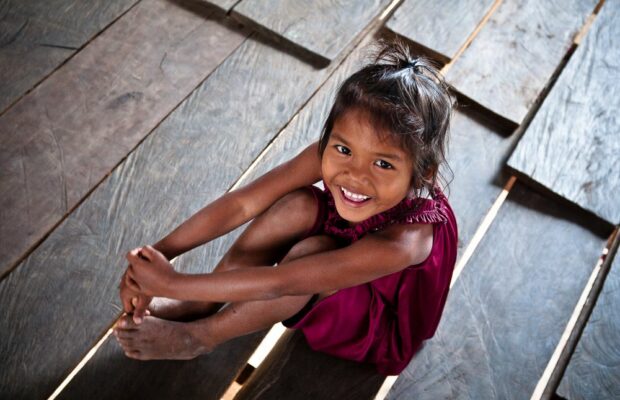
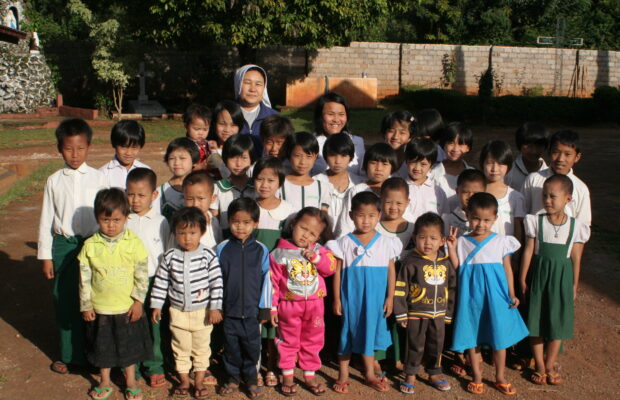
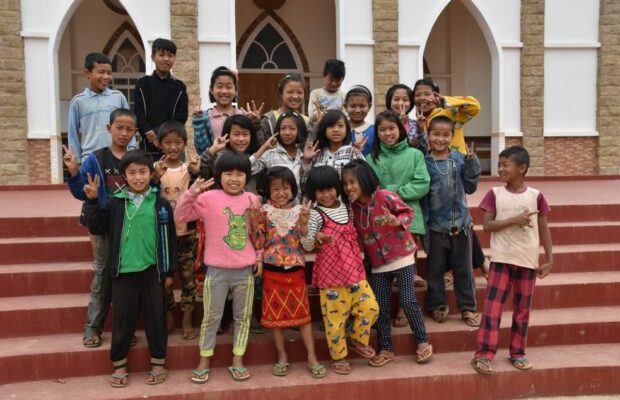
The Nam Khai programme supports the education of children who live in an isolated rural region plagued by armed conflict, drug trafficking and human […]
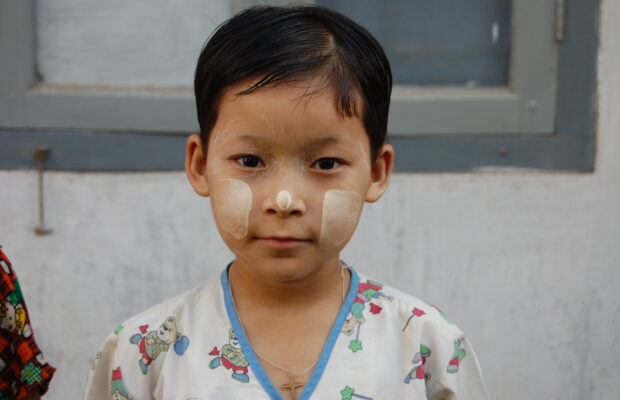
Sponsor a child from Myanmar
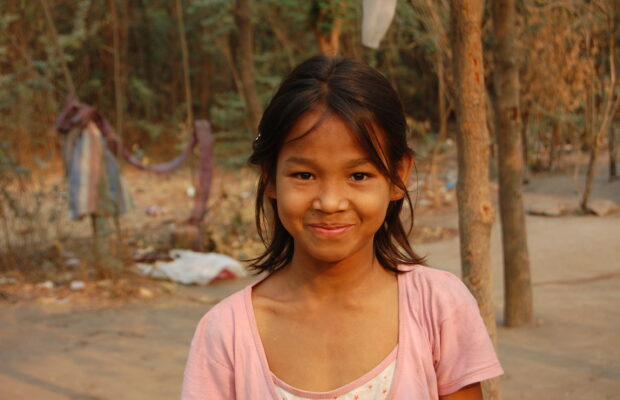
The Kyauk Tan centre, located east of Yangon, caters to children from communities that live on the margins of development. One-third of the children […]